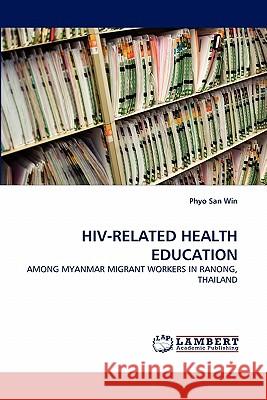Hiv-Related Health Education » książka
Hiv-Related Health Education
ISBN-13: 9783844330229 / Angielski / Miękka / 2011 / 140 str.
This study was done to assess the accessibility to, perceptions on and preferences for HIV-related health education among Myanmar migrant workers in Ranong, Thailand. Structured questionnaire and an open-ended question were used, and 357 subjects were interviewed. Non-parametric tests and bivariate correlation were used for hypothesis testing. In all, 245 workers (68.6%) had received HIV education. Longer length of stay in Ranong was associated with greater access, but youth had less access than others. There was no significant difference in access when comparing the high-risk occupational groups with others, but they had more frequent access than others. Regarding perceptions, only 6.2% agreed that they had adequate access, and also only 11.6% were satisfied with level of access. However, all believed that HIV/AIDS is an important matter. All preferred participatory types of HIV-related education over non-participatory ones. This preference was significantly stronger in the high- risk groups than in others. In addition, the majority of the supplementary qualitative information from the open-ended question reinforced the quantitative findings of the study.











